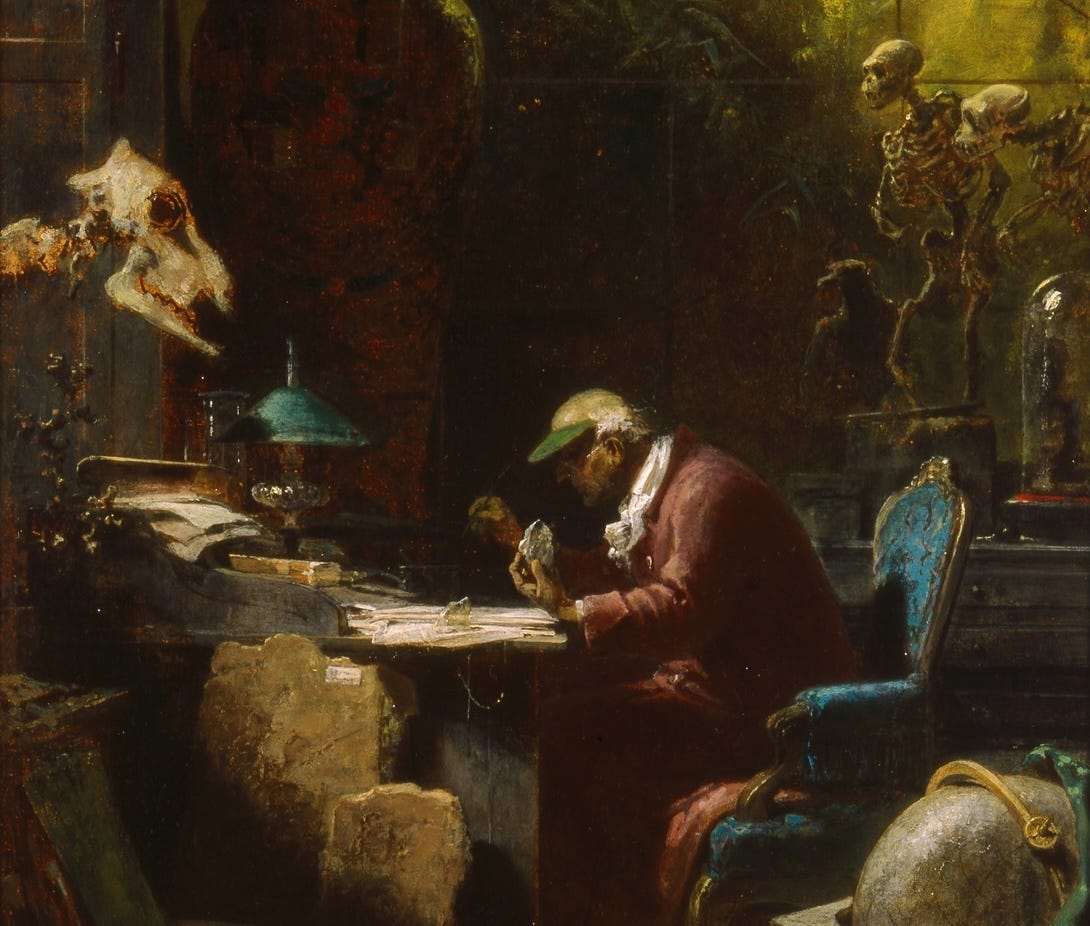Enthusiasm for learning “dead” languages is more alive than ever
A 2024 reflection
At the end of the year, you pause for a moment amidst the fruitcake and sugar cookies, put down your egg nog or gingerbread latte, and think of all that has happened over the previous twelve months.
In my case, 2024 was a busy year: the biggest event for me was that Ōsweald Bera got released, bringing to a close over two years of labour.
Writing a book is a solitary endeavour, but, when the book is done, the author emerges from the writing desk and gets a chance to commune once again with the world — and, with any luck, convinces some part of the world, well, to buy the book.
I’ve been honoured to be able to spend time over the past few months speaking with anyone and everyone interested in ancient languages — teachers, readers, students, and curious members of the general public (a recent highlight was an interview with Luke Ranieri), and I have to say that I’ve never been more enthusiastic about the state of ancient/historical language learning and teaching than I am now.
Why? Because I have found that enthusiasm for learning “dead” languages is more alive than ever.
As a case in point, Ōsweald Bera has now found its way into the hands of 1000 readers since pre-orders opened on November 1! Vastly more than I expected for a story about a talking bear written in a thousand-year-old language — I’m immeasurably grateful!
Of course, people learn dead languages for many reasons — for academic research, to reconnect with their roots, out of an interest in a historical period, to better understand the evolution of a modern language… all very strong reasons.
But, to me, the most compelling reason is that learning a dead language makes the past alive. Truly knowing a language is having it live within you, to paraphrase C.S. Lewis. It allows you to understand the past directly, on its own terms. You have no translator intervening between you and Homer, Virgil, the Beowulf poet, or whatever other author you long to read. More and more people are now having this experience.
What I find even more exciting than this raw enthusiasm is that it’s being channelled in very productive directions: a growing number of people are seeking out good language learning resources — resources which prioritize giving students large amounts of level-appropriate input in the language.
Responding to this demand, more and more people are creating these resources. Further, good resources also create demand, since the availability of resources for learning ancient languages makes these languages more easily accessible to the public, and creates students out of sceptics.
Some recent-ish standouts:
Carla Hurt. The Lover’s Curse: A Tiered Reader of Aeneid 4 (Latin)
Lingua Deo Gloria. Jonah: A Visual Reader (Biblical Hebrew)
Santiago Carbonell Martínez. Logos. (Ancient Greek)
Each of these is different in format and intended audience — let me know in the comments if you’d like me to give any of these a review! — but each is a good example of the kinds of resources we need to give students of dead languages: lots of reading material!
If you’re a student of one of these languages and you don’t have these books, pick them up now! Better still, The Lover’s Curse and Jonah are available in free digital versions.
I’m going to do my part as well. I have at least two projects that should be coming out in 2025 if all goes according to plan.
Ōsweald Bera. The Audiobook. This will be a full-cast recording featuring the acting talents of some of the leading lights of ancient language YouTube. We’re going into the studio in January.
Ōsweald Bera. A Student’s Guide. (working title, subject to change) This book will contain explanations for all the main grammatical features of Old English, synchronized with where they are first introduced in the main text of Ōsweald Bera. It will also contain ample practice exercises for making the new forms come to life in your mind.
And I have it on good authority that Vergil Press (Ōsweald Bera’s publisher) has some more non-Old English releases planned for 2025, which will delight learners of various other ancient languages.
So take heart, my friends — it’s a good time to be learning ancient languages.
As for me, I end this year feeling incredibly grateful for the support, feedback, and overwhelmingly kind response to Ōsweald Bera. The year 2024 was a great one for dead languages, but 2025 will be even better.
See you in the new year!



An audio book! I love the idea!!! Please let us know when it's complete!
Thank you
I believe you've come across my feed at just the right time!
I asked for and received Paris Psalter & Metres of Boethius for Christmas, only to open it and see Old English! I've got (Bible) Greek and (Bible) Hebrew under my belt, but I shall have to begin Latin and Old English soon!
Thrilled to see Lingua Deo Gloria on your recommended list as well - I love their stuff!
Lovely post - I look forward to seeing more!